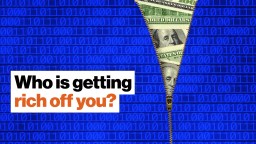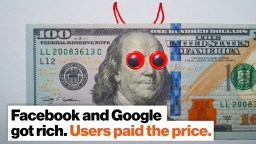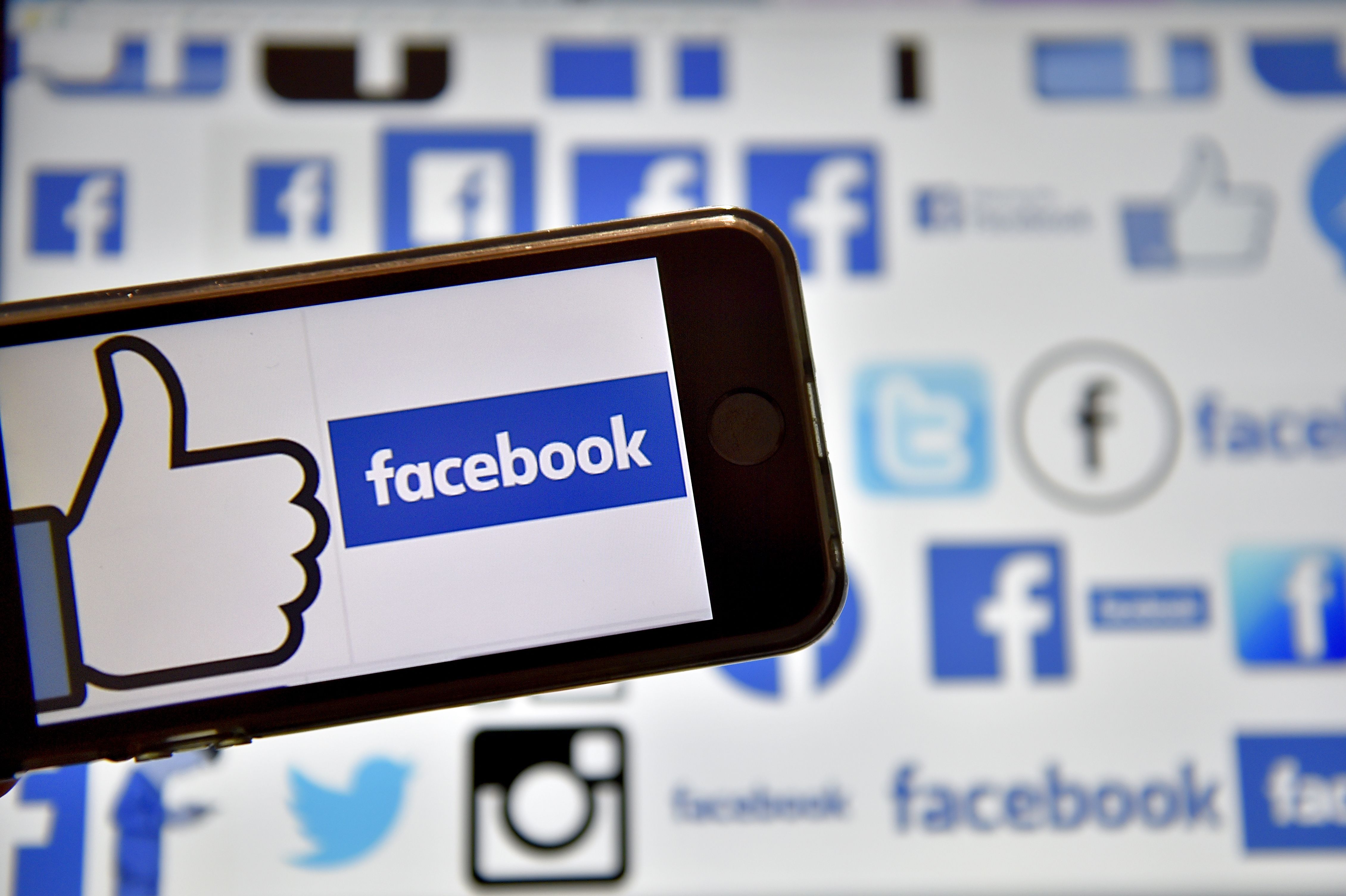advertising
Companies can identify you from your music preferences, as well as influence and profit from your behavior.
A new study finds that dogs fed fresh human-grade food don’t need to eat—or do their business—as much.
Humans are woefully unaware of their olfactory sense. That’s the reality we’ve been sold.
Launch your own copywriting career with these courses.
Facebook’s misinformation isn’t just a threat to democracy. It’s endangering lives.
Image ownership and copyright law are huge considerations for anyone producing digital content these days. Scopio offers hundreds of royalty-free images for use anywhere for any purpose.
Steve Wozniak doesn’t know if his phone is listening, but he’s minimizing risks.
The design ethicist did not hold back his concerns when talking to political leaders.
This is how data harvesting really works. You’re not going to like it.
▸
9 min
—
with
Where is your data now? Follow the money.
▸
4 min
—
with
An exhaustive report from The New York Times shows the alarming extents to which Facebook has been sharing user data.
“Didn’t you see me Googling ‘baby not moving?'” Gillian Brockell wrote a heartbreaking open letter to big tech companies imploring them to change the ways they target ads to users.
Opinion ruined journalism and Facebook killed truth—but there’s a way to make it right.
▸
5 min
—
with
A new AI-produced commercial from Lexus shows how AI might be particularly suited for the advertising industry.
Journalism got a big wake up call in 2016. Can we be optimistic about the future of media?
▸
5 min
—
with
In Life After Google, George Gilder writes that we’re paying a heavy cost for “free.”
A California-based company called PIX will soon release a backpack that can display animations and play games, offering a glimpse into the potential future of wearable technology. PIX, which started […]
The internet and social media have made persuasive appeals more powerful than ever before.
How useful are the algorithms dating sites use? According to one regulatory agency, not very.
Why does America confuse fantasy for reality, in pop culture and in politics? Kurt Andersen can pinpoint the moment it happened.
▸
5 min
—
with
In what Tristan Harris calls a “race to the bottom of the brain stem,” media companies and advertisers will do almost anything to keep your eyes locked where they want them.
▸
6 min
—
with
When you take off a virtual reality headset, you don’t remember seeing things, you recall experiencing them, says Kevin Kelly. VR will create a world of amazing opportunity – for us and for advertisers.
Facebook can flip your digital identity on and off at the switch; that is way too much power for any corporation to have, says Oliver Luckett — and we handed it to them.
▸
9 min
—
with
Columbia professor Tim Wu came to the Big Think studio to talk about clickbait. What happened next will shock you.
▸
5 min
—
with
Sean Curry takes aim at the rapidly evolving “gourmet” food industry that is warping our expectations, mindsets and first-world privilege to a scary new level.
“My Experience is What I Agree to Pay Attention to,” said psychologist William James. And therein lies the problem and danger of advertising: we don’t always agree or choose to pay attention, but it shapes our life experience irrevocably.
▸
9 min
—
with
Want five or six extra days every year? Easy – choose streaming over network TV. Adults are sacrificing 130 hours, and kids 150 hours, to ads annually when they watch commercial programming.



























